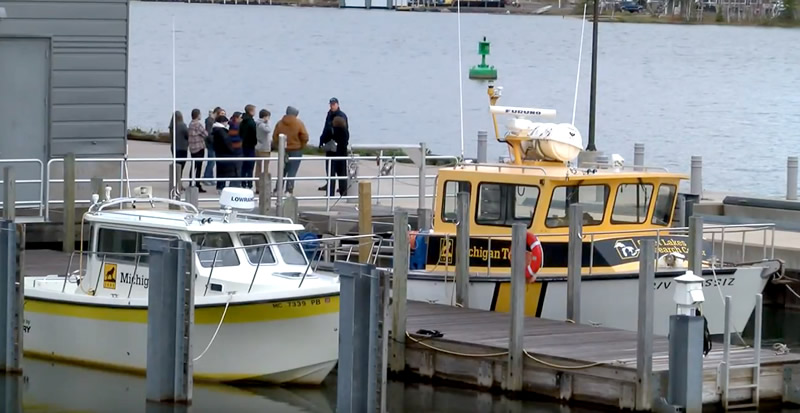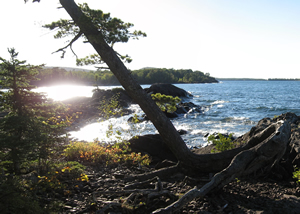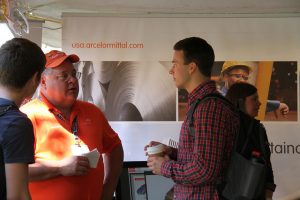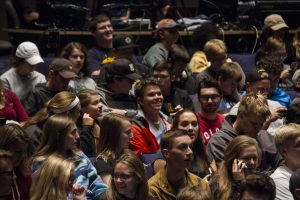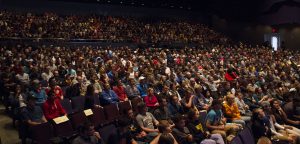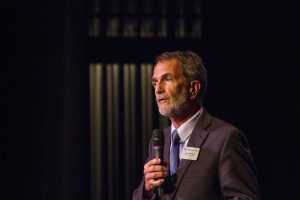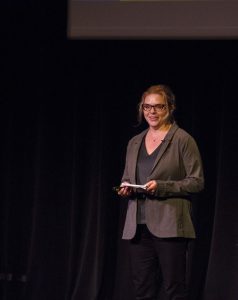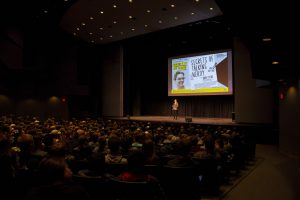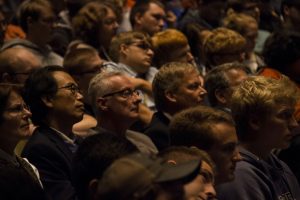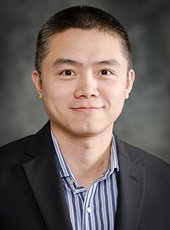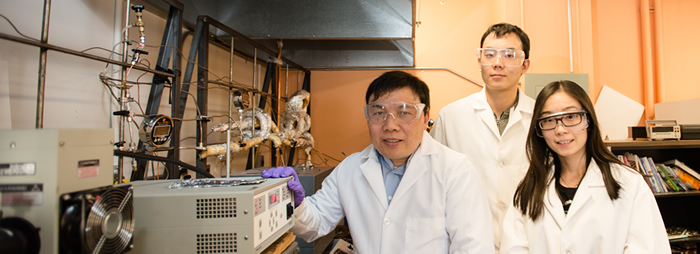
At the Research Development Day held Jan. 11, 2018, the following individuals were recognized for their research contributions in calendar year 2017.
College of Engineering
Top research expenditures: Jeff Naber (ME-EM), Greg Odegard (ME-EM), Paul Sanders (MSE)
Related:
NASA Taps Tech Professor to Lead $15 Million Space Technology Research Institute
Chemical Engineering
Lei Pan received his first external funding as a principal investigator at Michigan Tech.
Civil and Environmental Engineering
Hui Yao (formerly CEE) received his first external funding as a principal investigator at Michigan Tech.
David Watkins received an award of more than $1 million.
Related:
Household Sustainability: Consuming Food, Energy, Water
Electrical and Computer Engineering
Jeremy Bos, Lucia Gauchia, and Tony Pinar each received their first external funding as a principal investigator at Michigan Tech.
Geological and Mining Engineering and Sciences
Snehamoy Chatterjee, James DeGraff, Mark Kulie, and Matthew Portfleet each received their first external funding as a principal investigator at Michigan Tech.
Materials Science and Engineering
2017 Michigan Tech Research Award: Yun Hang Hu
Bhakta Rath Research Award: Yun Hang Hu and Wei Wei
Joe Licavoli received his first external funding as a principal investigator at Michigan Tech.
Related:
Yun Hang Hu Wins Both Research Award and Bhakta Rath Award
Mechanical Engineering-Engineering Mechanics
Parisa Abadi, Chunpei Cai, Hassan Masoud, and Ye Sun each received their first external funding as a principal investigator at Michigan Tech.
Jeff Naber and Greg Odegard each received awards of more than $1 million.
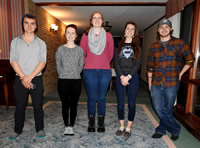
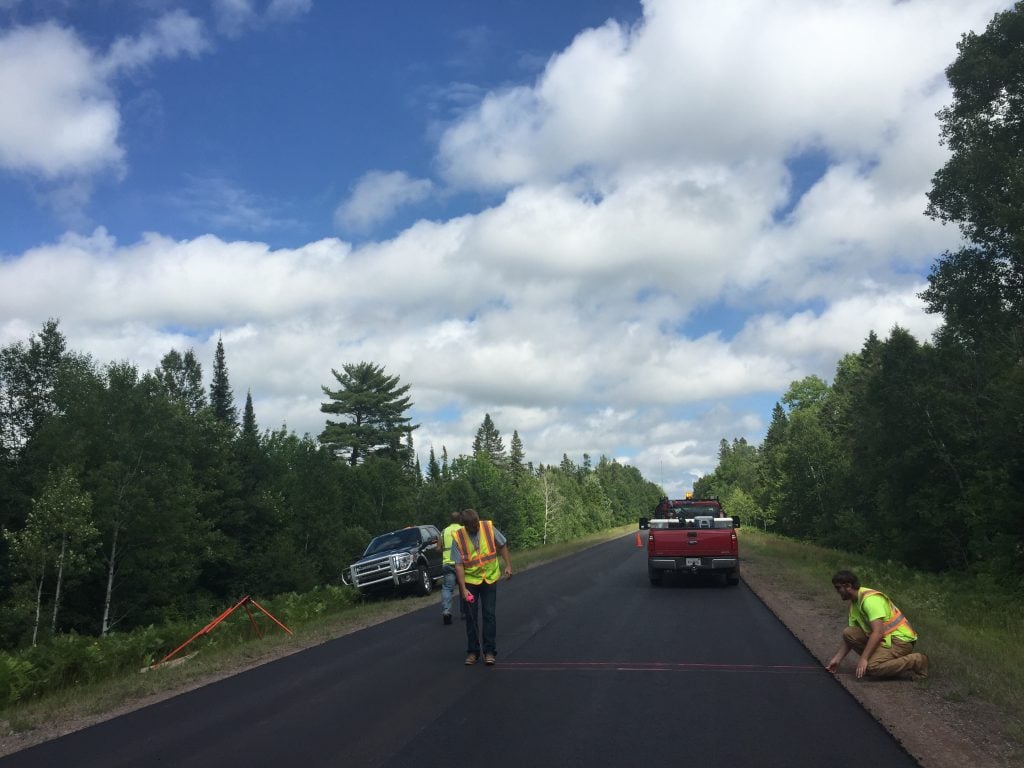
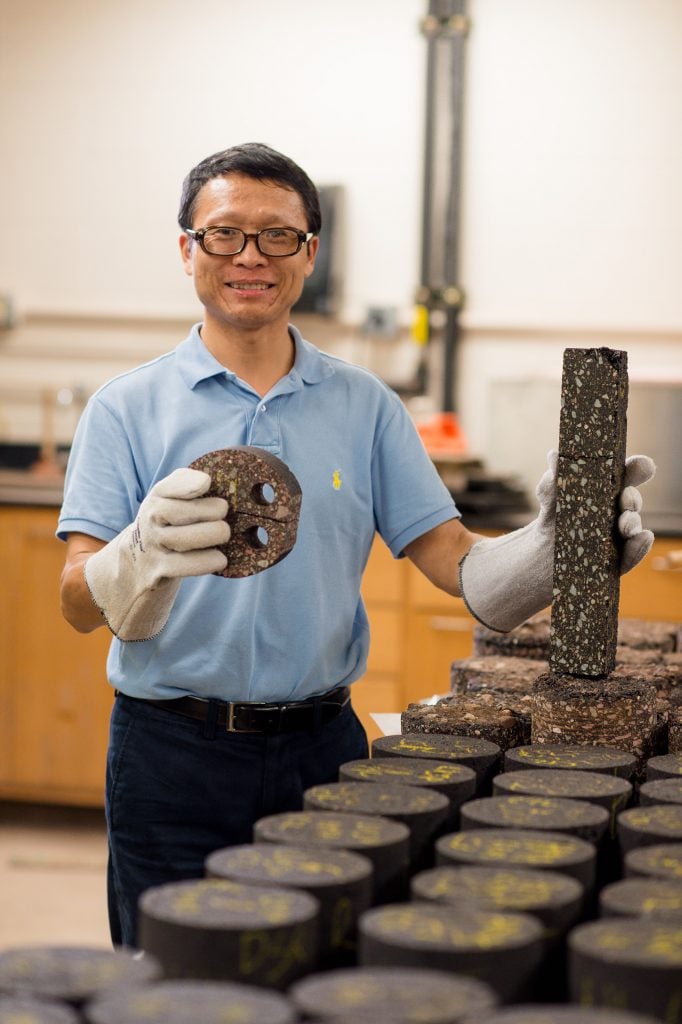
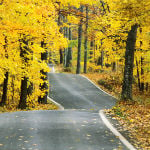 The MDOT Office of Research is soliciting research priority ideas for their upcoming funding years FY19/20/21. This is a great opportunity for Michigan Tech researchers from various departments to expand their research portfolio into transportation topics.
The MDOT Office of Research is soliciting research priority ideas for their upcoming funding years FY19/20/21. This is a great opportunity for Michigan Tech researchers from various departments to expand their research portfolio into transportation topics.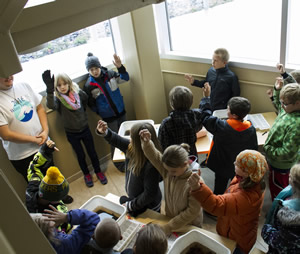 The
The 